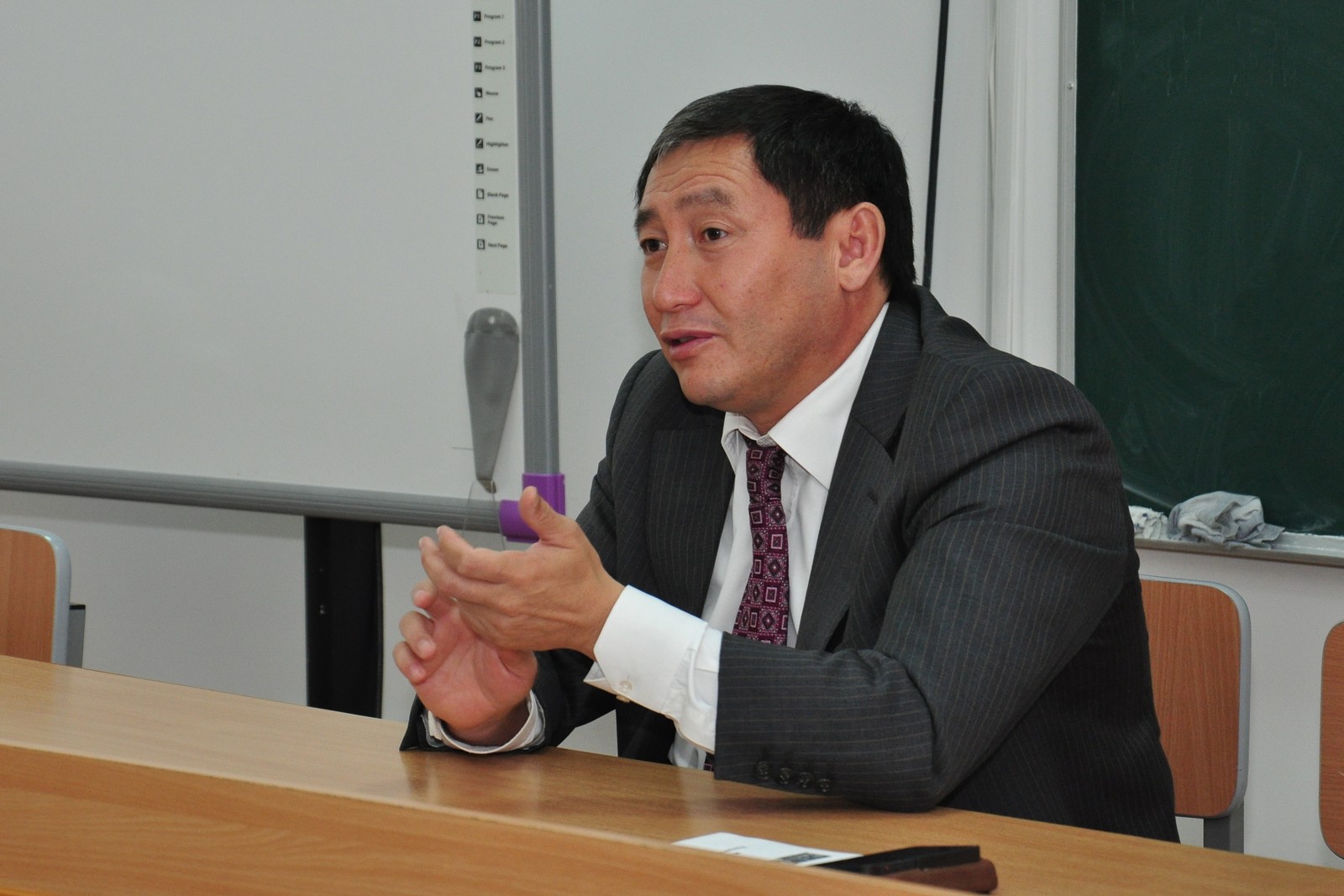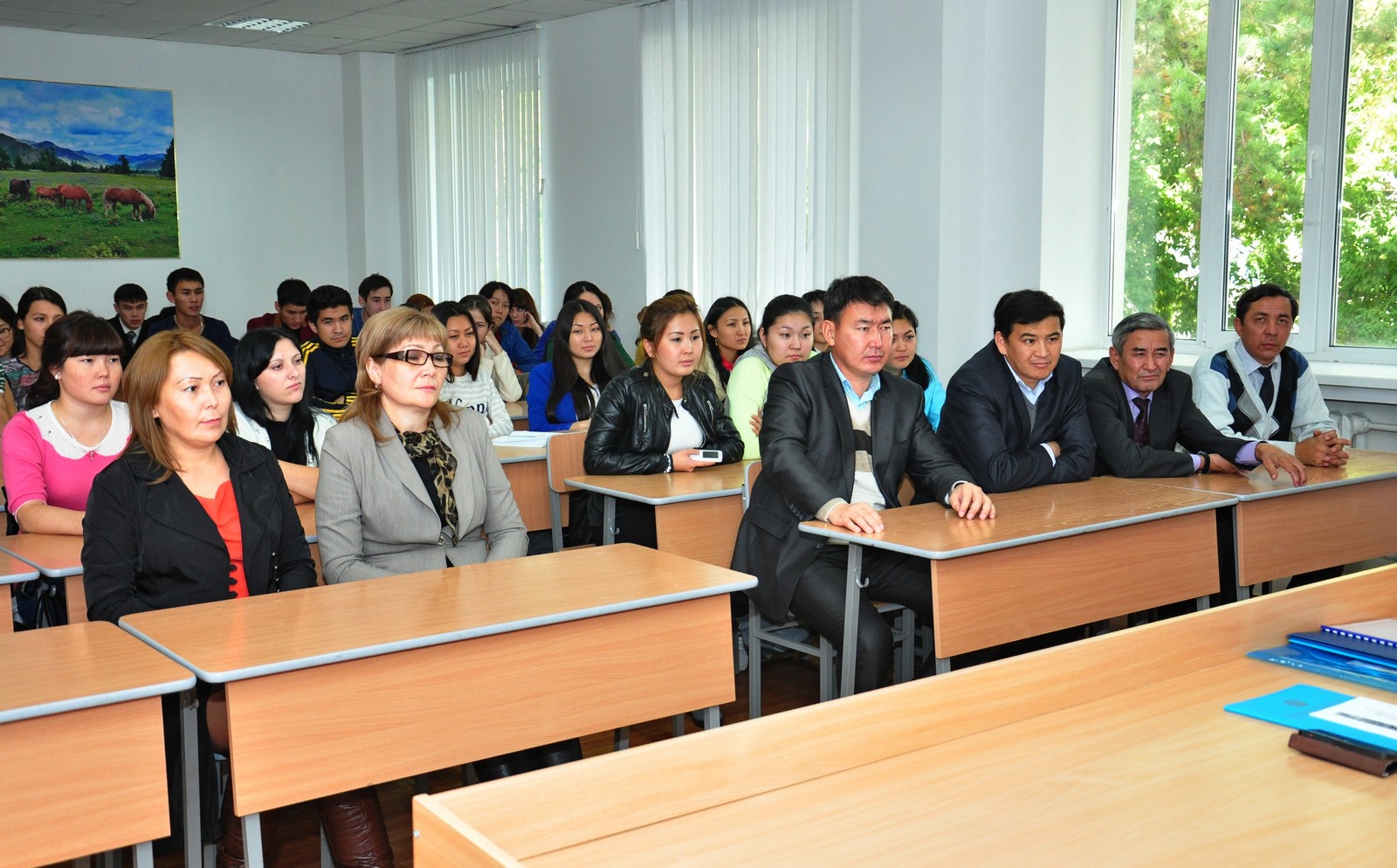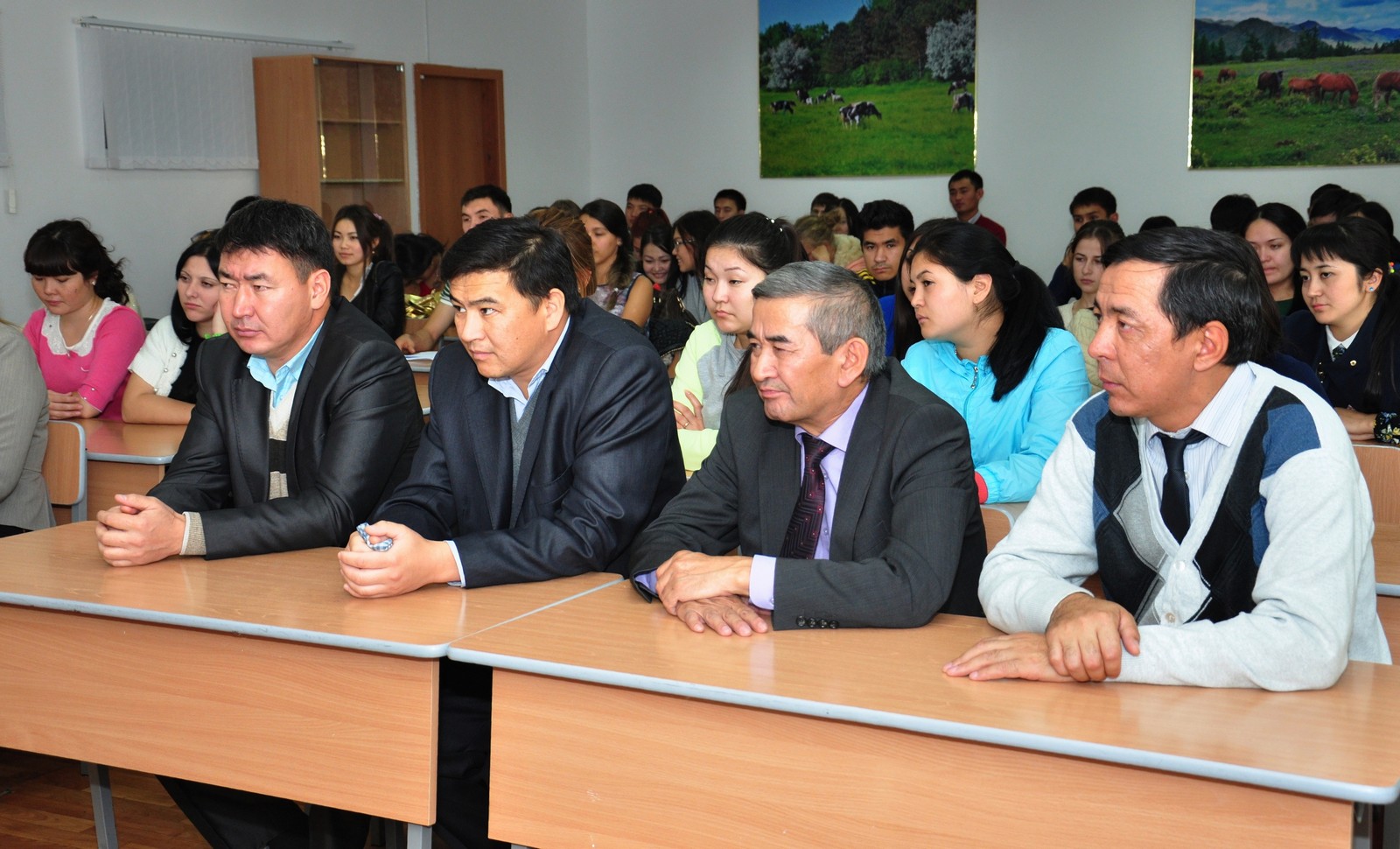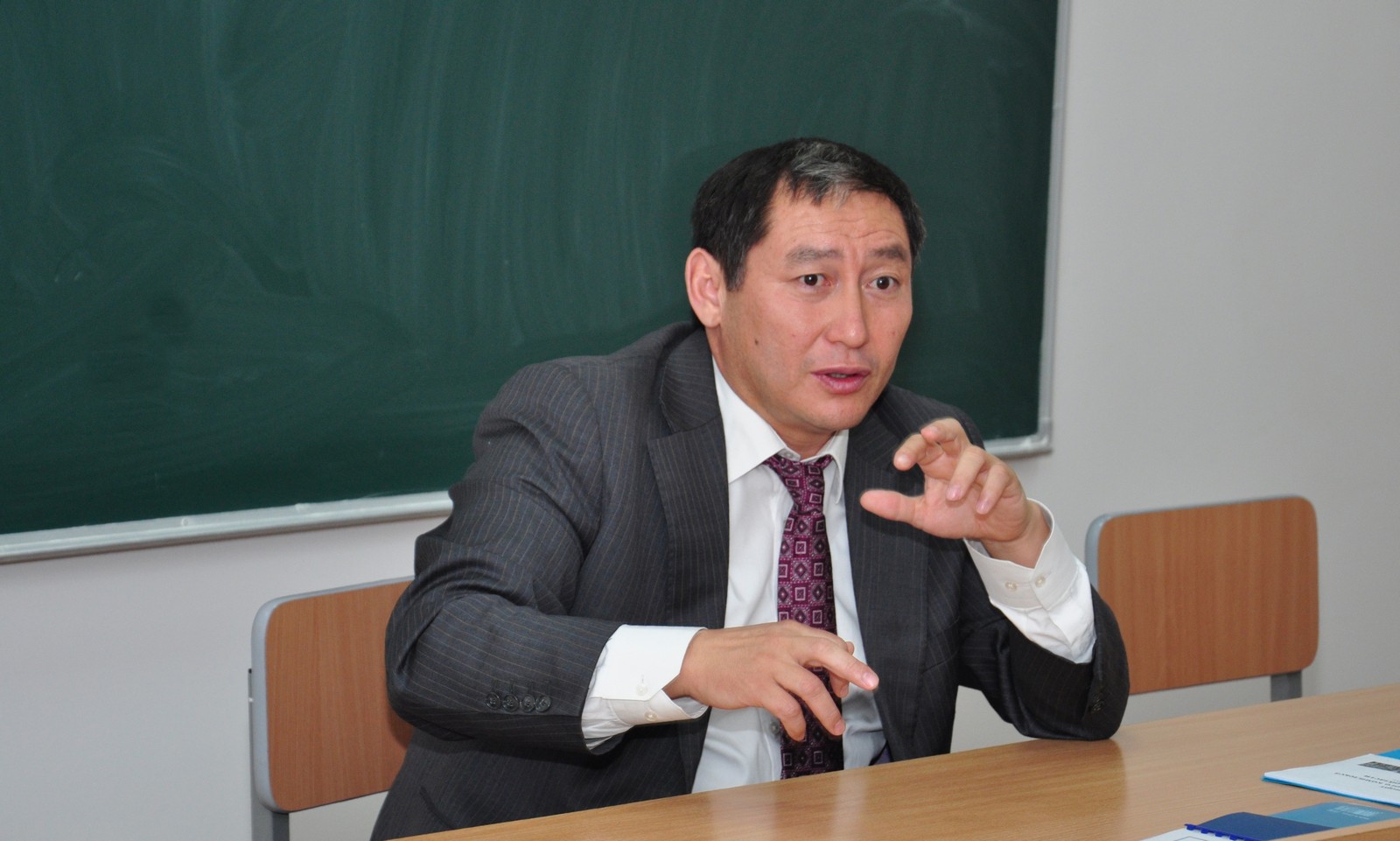Last-year students majoring in Agronomy and Livestock Products Technology had a meeting with the region’s Deputy Akim for Agriculture Nurzhan Ashimbetov on September 23, 2014.
 |
 |
 |
 |
The Commission on Business Climate in the Field of Agriculture under the Akim's Office was established in our region to clarify the policy of the state in supporting the agricultural sector. One of the members of this Commission is the Dean of the Faculty of Agricultural Technology of S. Toraighyrov Pavlodar State University, Doctor of Agricultural Sciences, Professor Toktar Bekseitov.
Nurzhan Ashimbetov gave a lecture on Types of State Support in the Field of Crop and Animal Farming Development. The lecture was devoted to the problems of processing and export of meat products and potato farming with subsequent export to the Russian Federation. Deputy Head of the region noted that the state provides various types of support to the agricultural sector. For example, water-supply systems were built for farmers of the region on the initiative of the Regional Office for Agriculture with 80 percent of the costs subsidized by the state.
Nurzhan Ashimbetov stressed that agriculture is one of the most important sectors of the national economy as it ensures food security of the country. The lecture was held in the form of a lively dialogue and two-way conversation. Students asked questions not only relating to the topic of the lecture, but also about the problems of employment and support of young specialists.
The lecture was also attended by the Vice-dean for General Affairs of the Faculty of Agricultural Technology, Candidate of Agricultural Sciences, Associate Professor Zhastlek Uakhitov, Head of the Department of Zootechnology, Genetics and Selective Breeding, Candidate of Agricultural Sciences, Professor Nadiya Burambayeva, Head of the Department of Agricultural Technology, Associate Professor Kairly Omashev, Faculty's academic and support staff members.
At the end of the conversation, Nurzhan Ashimbetov proposed to hold such meetings of students with representatives of state bodies on a regular basis, so that students could share the most troubling problems, and the regional authorities could take timely measures to provide the necessary help and support.






